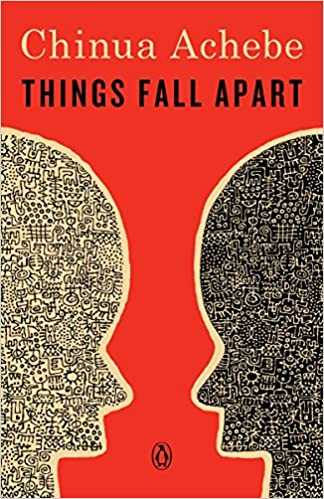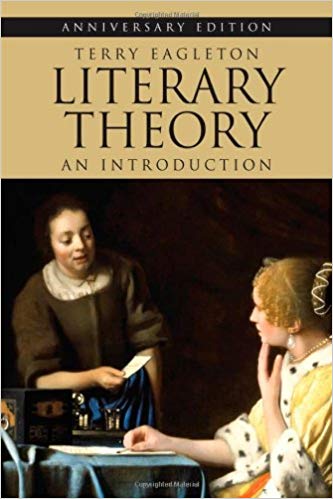Literature in Context: Postcolonial Literature
T, TR 2:00 pm to 3:20 pm.
LANG 202
Office AUD 106
Contact: Masood Raja
Introduction
In the last few decades, postcolonialism has emerged as a fascinating field of study within the English departments. As a field, postcolonial studies combines a deep understanding of the structures of literary production in the former European colonies and thus makes it imperative on the students and scholars alike to discuss literary works with due attention to the historical and contemporary contexts within which these literatures are produced.
Using some primary and secondary texts form the postcolonial canon, this course aims to provide a general understanding of reading all literary texts, including postcolonial texts, within their temporal and spatial contexts.
Required Texts:
The Bedford Anthology of World Literature, Vol. 6
Young, Robert. Postcolonialism: A very Short introduction
Roy, Arundhati. The God of Small Things.
Occasional handouts/Course Reserves. [HO/RES]
Course Policies and Requirements:
Students are expected to come prepared for class: This involves reading the assigned texts, listening carefully to their peers, and contributing their views in a collegiate and stimulating way. Attendance is mandatory.
Distribution of Points:
Response Journals 100 Points
Mid-Term Exam 200 Points
Group Presentations 300 Points
Participation 100 Points
Term Paper 300 Points
Total 1000 Points
YOU MUST FINISH ALL MAJOR ASSIGNMENTS TO PASS THE COURSE
Response Journals(100 Points): Every week you will turn in a journal responding to the readings assigned for the week. The journal should be minimum two pages, double-spaced, font 12 Times. Following are some, but not all, questions you may consider:
What does the text say about gender, race, ethnicity, class, nation, or power and what are your views about it?
Did you agree or disagree with the text’s politics? why?
What is the text critiquing? • How can we relate this text to contemporary realities?
Does this text raise the question of justice? If so, how and for whom? • Does the text provide a politics for a better future?
How does the form compare to the metropolitan techniques of creative production? (For creative writing majors)
Mid-Term Exam (200 Points)
The Mid-term will be given in the eighth week. The exam will include three essay questions. I will give you a comprehensive study guide a week before the exam.
Presentations (300 Points)
- What does the text say about gender, race, ethnicity, class, nation, or power and what are your views about it?
- Did you agree or disagree with the text’s politics? why?
- What is the text critiquing?
- How can we relate this text to contemporary realities?
- Does this text raise the question of justice? If so, how and for whom?
- Does the text provide a politics for a better future?
Term Paper (300 Points)
The final term paper will be due on the last day of class. The paper should be 10-15 pages, written in MLA style, with a clearly defined thesis and a coherent argument. I expect you to use at least one of the major critical approaches that you must have learned in your Critical Theory course. I would encourage you to choose your topic early and to conduct extensive research. I will be available to assist during all the stages of your research and composition process. I will give you a separate handout about the detailed requirements of this assignment. No late papers please.
Class Participation (100 Points)
As this is a discussion format class, your thoughtful participation is essential to the success of the class. I encourage collegiate, open, and thought-provoking class discussions. Remember, we are all here to learn, so let us share our ideas and knowledge to make this class into a dynamic learning experience. I encourage you to speak-up in the class, not just about the texts but also if you have any suggestions about how to improve our learning during the course.
Attendance
You are expected to attend the class regularly. You will be in the danger of failing the course if you miss more than FOUR class sessions.
Plagiarism
Plagiarism is against the law, and will result in automatic failure in the course. Simply stated, plagiarism is when you try to pass anyone else’s work as your own or if you turn in your own work written for another class.
ADA
If you have a disability, please contact the campus ADA office and bring me the necessary documentation. I will try my best to accommodate you if you need any special instruction or assistance.
Weekly Schedule (Can be changed by the instructor)
Week One
Introduction to the course.
In-Class diagnostic Journal
New Terms: Center/periphery, Colonialism, Imperialism, Third World
Readings:
Young: Intro to Postcolonialism
Readings:
Young: Intro to Postcolonialism
Week Two
New Terms: Binarism, Othering, Going native
Class Discussion: Young
Readings:
Young
Week Three
Class Discussion: Young
New Terms: Diaspora, Discourse
Readings:
Achebe, “An Image of Africa,” (101-107), Frantz Fanon, “ Black Skin White Masks,” (138-140) “From Wretched of the Earth” (107-110).
Week Four
Class Discussion: Achebe, “An Image of Africa,” (101-107), Frantz Fanon, “ Black Skin White Masks,” (138-140) “From Wretched of the Earth” (107-110).
New Terms: Hybridity, Hegemony, Dominance
Readings:
Aime Cesaire, “A Tempest,” (111), Chinweizu, “Decolonizing the . . .” (114), Ngugi “Creating space . . .” (117-121)
Week Five
Class Discussion:Aime Cesaire, “A Tempest,” (111), Chinweizu, “Decolonizing the . . .” (114), Ngugi “Creating space . . .” (117-121)
New Terms: Native, Nativism
New Terms: Authenticity, Social Darwinism
Readings:
P’bitek (167), Head, “The Deep River,” (286)
Week Six
Class Discussion: P’bitek, Head.
New Terms: Subaltern, Appropriation, Abrogation
Readings:
Mahfouz, “Zaabalawi,” (803), Rifaat, “My World of the Unknown,” (247), Darwish, “Identity Card (136)
Week Seven
Class Discussion: Mahfouz, Rifaat, Darwish
New Terms: Agency, Mimicry
Readings:
Mukherjee, “A Wife’s Story,” (306), Hossain, “Sultana’s Dream,” (122).
Week Eight
Class Discussion: Mukherjee, “A Wife’s Story,” (306), Hossain, “Sultana’s Dream,” (122).
Mid Term
Readings:
Narayan, “A Horse and Two Goats,” (143), Naipaul, “Our Universal Civilization,” (304).
Week Nine
Class Discussion: Narayan, “A Horse and Two Goats,” (143), Naipaul, “Our Universal Civilization,” (304).
New Term: Magic Realism
Readings:
Marquez, “ A Very Old Man . . .” (174), Fuentes, “The Prisoner of . . .” (178).
Week Ten
Class Discussion: Marquez, Fuentes.
New Terms: Neoimperialism, Militarization, Corporatization.
Readings: Rushdie “The Courter” (289), Desai “The Farewewll Part” (278), Cisnerros “Never Marry a Mexican” (312)
Weel Eleven
Class discussion: Rushdie “The Courter” (289), Desai “The Farewewll Part” (278), Cisnerros “Never Marry a Mexican” (312)
Readings: Lu Xun “The Sory of . . .” (126), Tanazaki “Aguri” (129)
Week Twelve
Class discussion: Lu Xun “The Sory of . . .” (126), Tanazaki “Aguri” (129)
Readings:
The God of Small Things
Week Thirteen-Sixteen
Class discussion: The God of Small Things



Leave A Comment